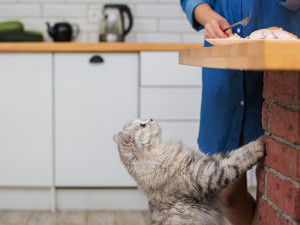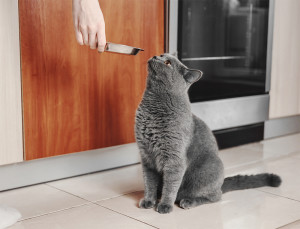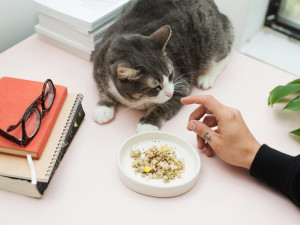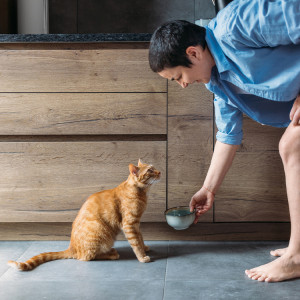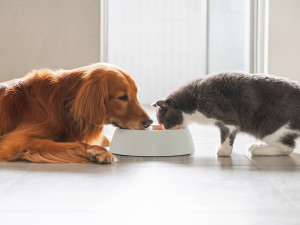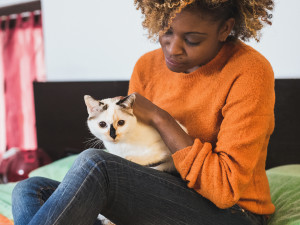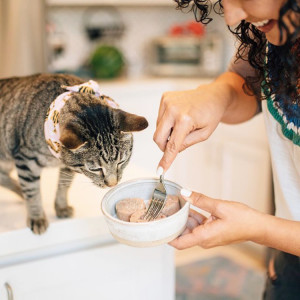Is Homemade Cat Food Good for Your Kitty?
The best ingredients to include when considering a home-cooked diet for your cat.
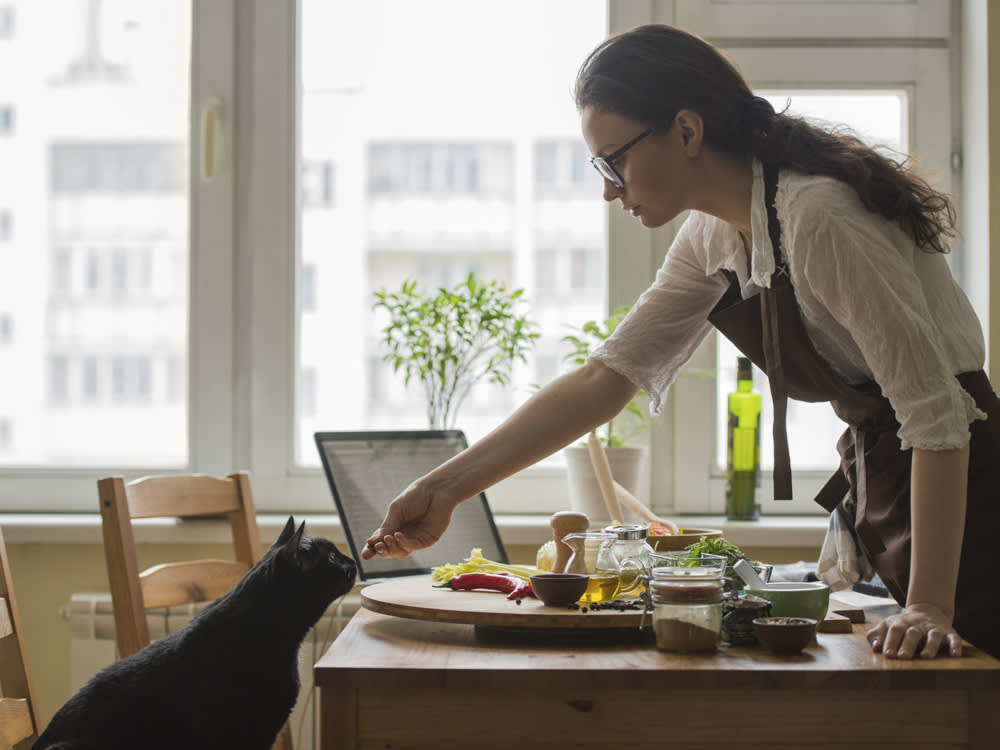
Share Article
Choosing your cat’s diet is an incredibly personal decision (and they will definitely let you know if they think it was the wrong one). There are many great options on the market right now, but if you want to add some home-cooked food to your kitty’s diet, there are some effective ways to try.
A home-cooked feline feast is about more than knowing what your cat is consuming. It can also be a strategy to address health issues. Dr. Ruth Roberts, a holistic pet health coach and creator of The Original Crockpot Dietopens in new tab, notes that pet parents often seek out fresh, whole-food diets when their cats are diagnosed with chronic diseases, from irritable bowel disease to cancer. You might be able to whip up your favorite recipes without much thought, but cooking for your cat is a little more complicated. You should always talk with your vet before adding any homemade food to your cat’s daily diet.
Get the balance right.
Cats are “obligate carnivores” which means their diets must contain animal proteins, for starters. A nutritious diet for cats should include the right balance of nutrients, including protein from meat or fish, amino acids, healthy fats, vitamins, minerals, and water. The sources of these ingredients range from beef and salmon to vegetables, avocado oil, and supplements.
“You need to make sure you’re using a recipe that allows you to create a complete and balanced diet,” Dr. Roberts says. The ingredients you leave out are equally important. Certain foods — including raisins, grapes, onions, garlic, tomatoes, nuts, and the artificial sweetener xylitol — are toxic to cats.

She also cautions against adding too much corn, rice, soy, or other simple carbohydrates to homemade cat food because they are harder to digest and can have a negative impact on gut health. Work with a veterinarian or nutritionist to develop a recipe for your cat’s specific health needs.
Cook with caution.
Like other fresh, homemade foods, DIY cat foods have a limited shelf life. In the refrigerator, a batch lasts about five days. Dr. Roberts suggests cooking in large batches and separating the homemade food into smaller portions, storing the rest in the freezer and thawing as needed.
Dr. Roberts advises against making an abrupt change with your cat’s food. Cats are often too finicky to accept a new food, and the transition period reduces the risk of stomach issues from switching them too fast. Aim to transition your cat to homemade cat food in about two weeks to give them time to adjust. Start by mixing 25 percent of the homemade cat food with their kibble, then adding a higher percentage of homemade cat food until they are used to it.
Dr. Roberts acknowledges that a DIY diet is not for all cat parents. That said, transitioning to a homemade diet (or a partially homemade diet) can do wonders for some cats. According to Dr. Roberts, pet parents who add homemade food to their cats’ diets often notice their cats have more energy, less poop, glossier coats, and even improved values in their blood work.
Disclaimer alert: This article is here to share information. But, much like pineapple on pizza, the topic may be controversial. Meaning, not all vets or pet professionals agree. Because every pet is a unique weirdo with specific needs. So, don’t take this as fact or medical advice. Talk things over with your vet when making decisions, and use your best judgment (about both your pet’s health and pizza toppings).

Jodi Helmer
Jodi Helmer is a North Carolina-based freelance writer who shares her home with an embarrassing number of rescue dogs and relies on four feral cats to patrol the barn. When she isn’t refilling food and water dishes, Jodi writes about animals for Scientific American, Sierra, WebMD, AKC Family Dog, Living the Country Life, and Out Here.
Related articles
![Hand holding food bowl peeks into frame as a cat looks up expectantly]()
The Ultimate Puzzle: Picking the Right Cat Food
Four veterinary nutritionists pick apart the claims so that you can choose the right food for your kitty.
![Close up view of a person's hand feeding a gray cat with food]()
Does Your Cat Really Need to Go Grain-Free?
You’ve got questions. Dr. Bruce Kornreich, director of the Cornell Feline Health Center, has answers.
![Person with short hair putting water bowl on floor for cat]()
How to Get a Cat to Drink Water
Their desert-dwelling roots might resist hydration, but these tricks can help.
![A dog and a cat eating from the same food dish.]()
Help Your Chonky Pet Lose Weight
This National Pet Obesity Awareness Day, here are pro tips to help make sure your pet isn’t packing on too many pounds.
![Woman petting her cat]()
Don’t Come For Us, But Is Your Cat Overweight?
We love a chonky cat, but here’s what you should know.
![Woman feeding her cat freeze dried raw food.]()
Everything You Need to Know About Freeze-Dried Cat Food
This diet could be just right for your cat. But keep these things in mind before you make the switch.

